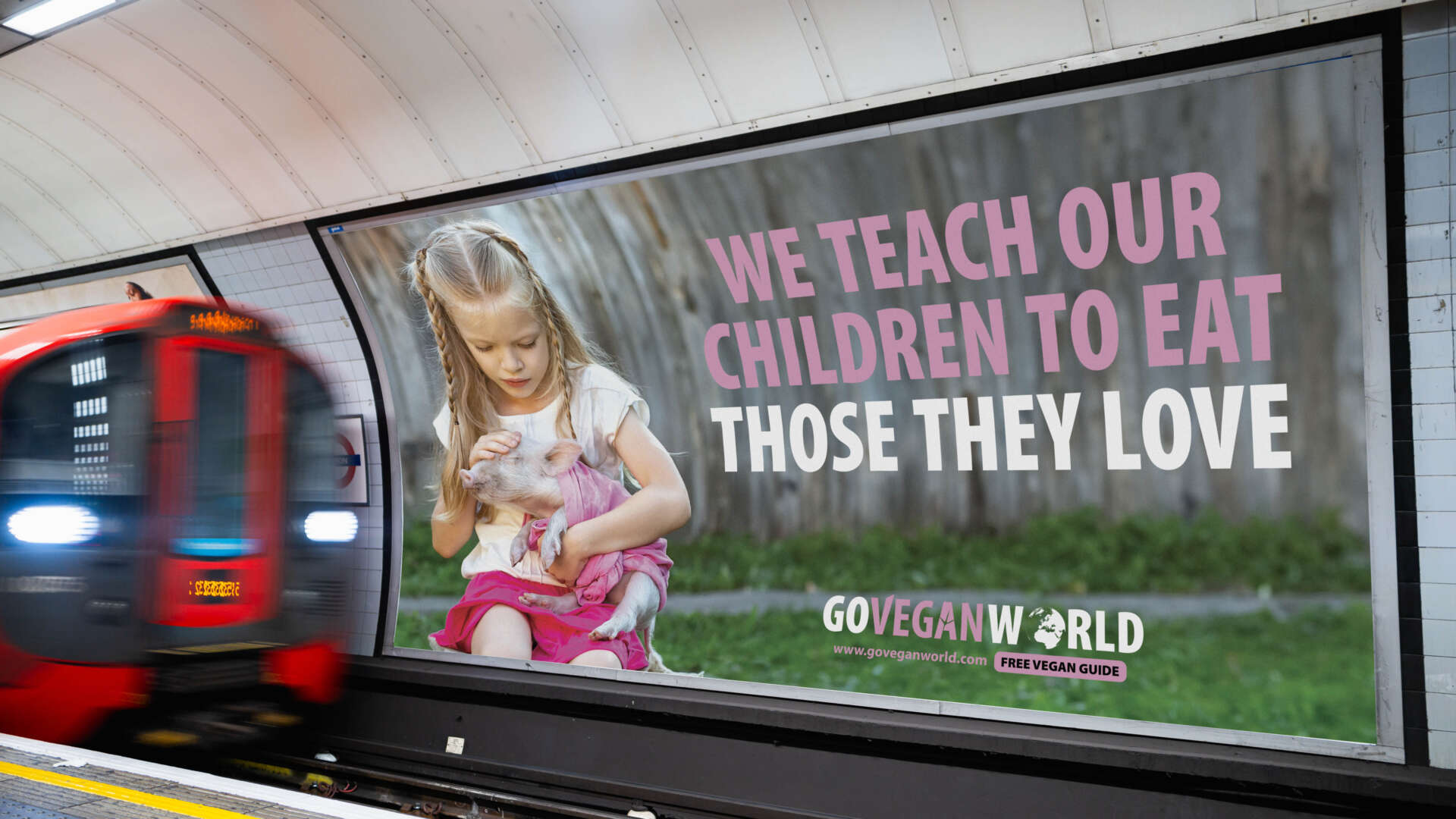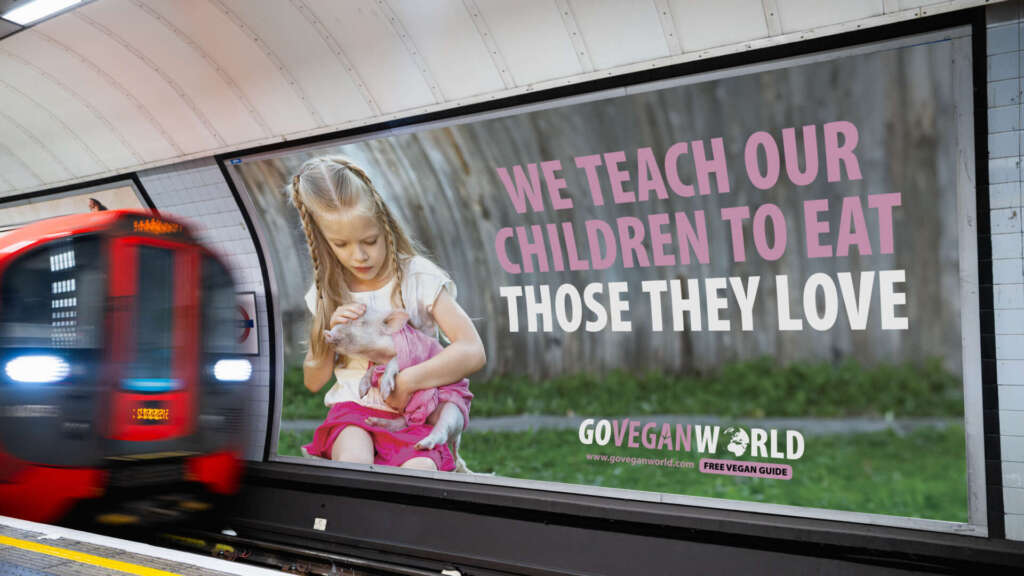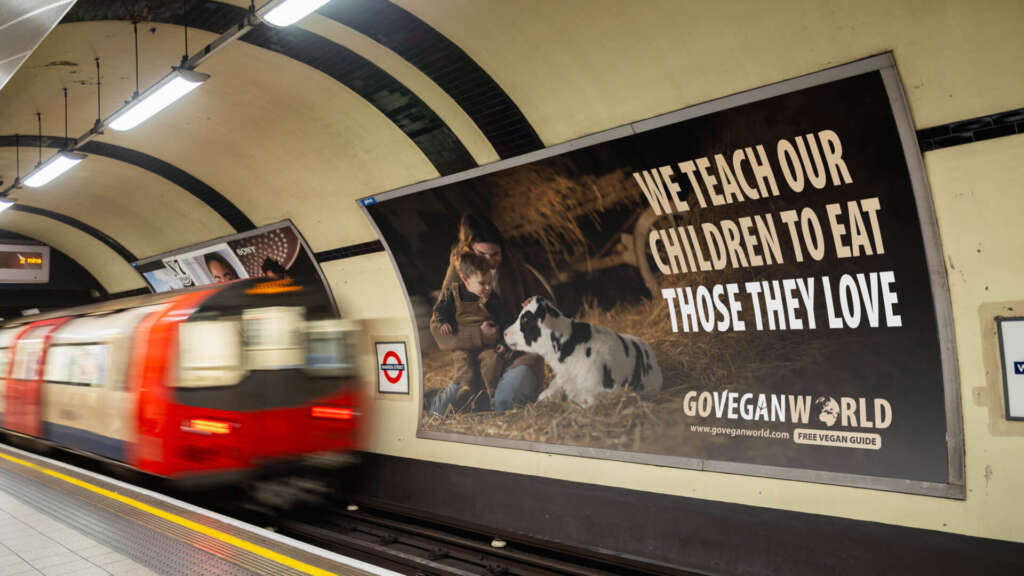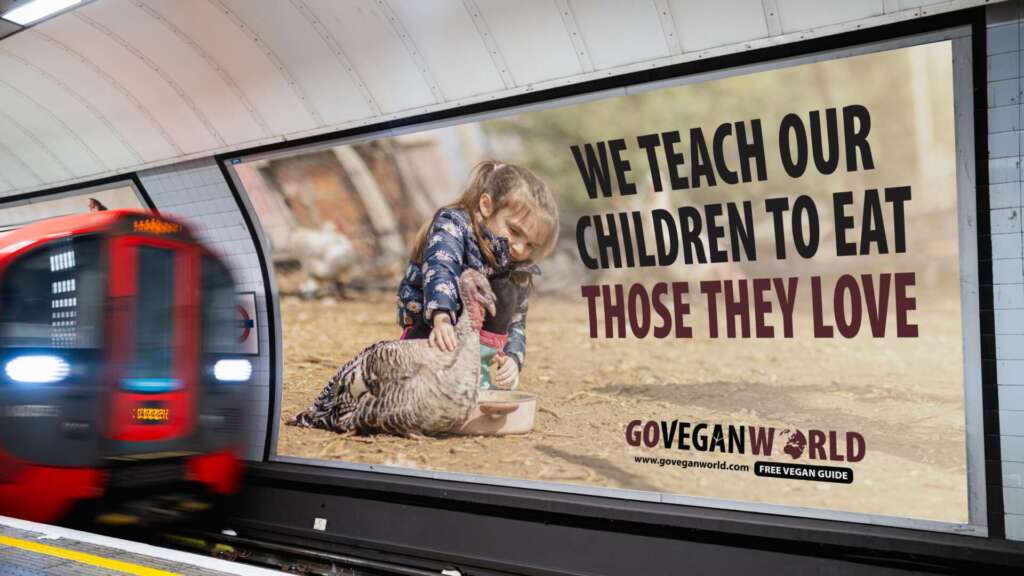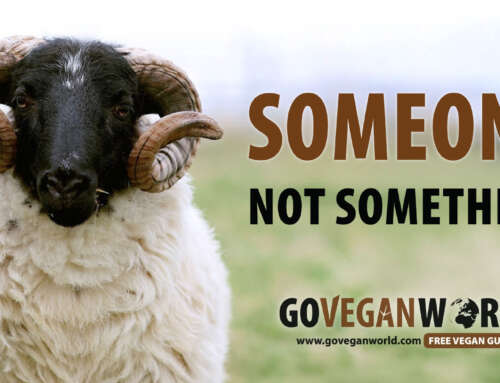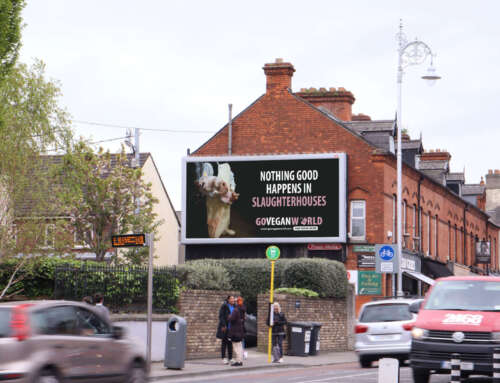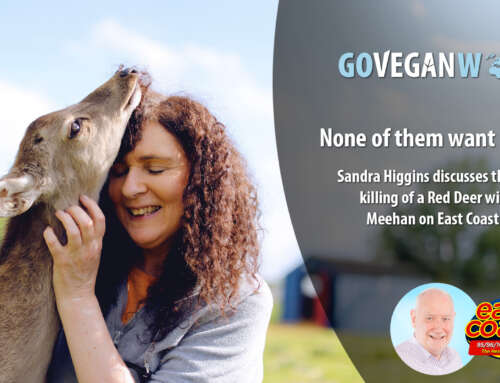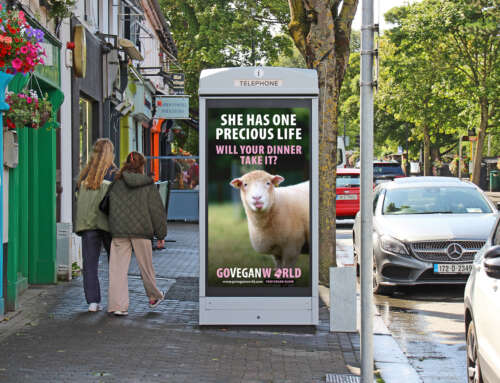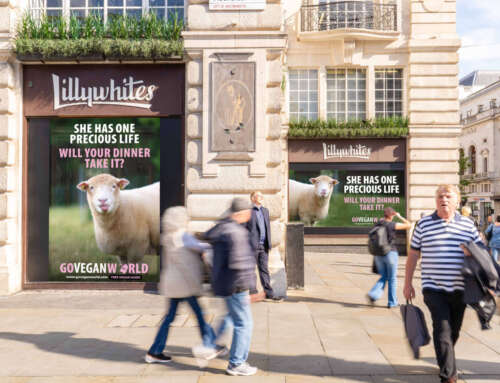The Normalisation of Killing
It is not normal for us to kill to meet our needs. Science confirms that it is not only unnecessary to kill other animals but doing so has dangerous disadvantages in terms of environment destruction, climate chaos, antibiotic resistance, and zoonotic disease. It is much more rewarding to let someone live than to kill them. So how do we develop from children who love other animals to adults who pay for them to be exploited and killed on our behalf?
There are several theories (Cole and Stewart, 2014); Korimboccus, L (2020) that examine our childhood social relations with other animals and account for the psychological processes children go through as they grow up in a speciesist society where animal use is normalised. Go Vegan World disrupts these processes for viewers as it draws attention to the link between ‘animal products’ and the living, feeling beings they were before they were exploited and killed.
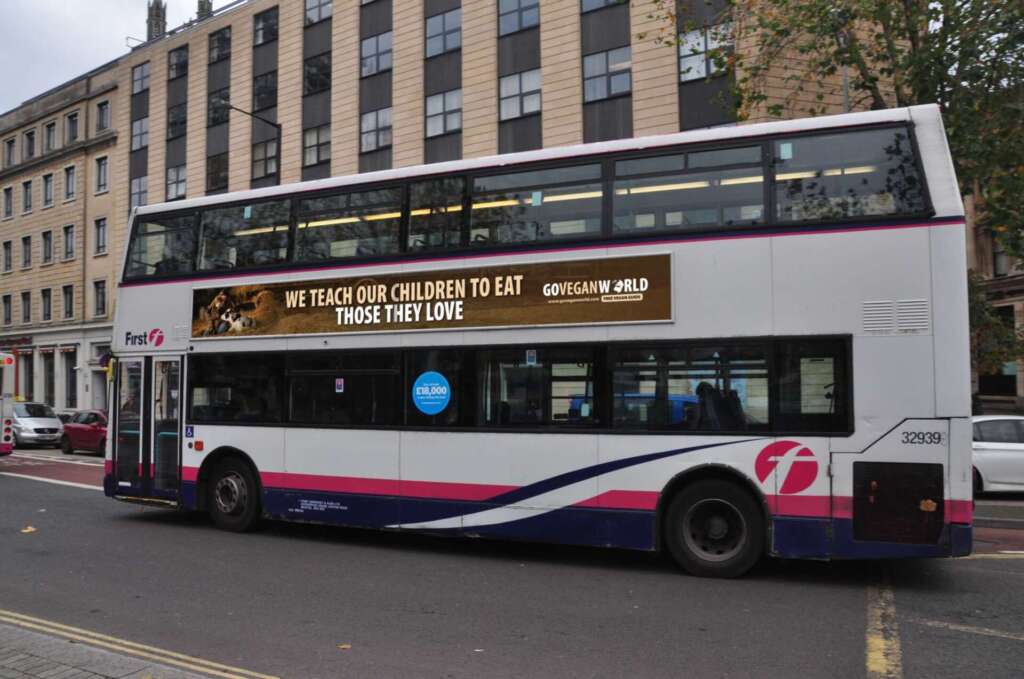
Other animals do not need human love. They need us to respect their rights and stop using and killing them. However, we use and kill them because of the speciesist view that because they are different to us (being members of different species), they are inferior to us and we are entitled to own, exploit and kill them. In contrast, children do not usually perceive species membership as a reason for unfairness. Our campaign uses the natural affection children display towards other animals to remind viewers that we create a boundary between “them and us” that is against our natural instinct to recognise sentience in others and respect their rights to what we want for ourselves.
Our ads are live on 100 buses in Birmingham and on billboards at Waterloo, Liverpool St and Londonbridge London Underground stations.
References:
The Peppa Pig Paradox:
“Despite Peppa Pig being a billion-pound character favourite of children across the globe, many of those same children regularly consume pig products. Using cognitive dissonance as a starting point, this photo essay aims to investigate how the “meat paradox” (Loughnan et al., 2010) may be applied at an intra-species level to this phenomenon: The Peppa Pig Paradox. It may be that animals in the Peppa series are simply anthropomorphised versions of ourselves (Mills, 2017); that the anthropocentric human-is-animal metaphors we employ maintain negative views of all things porcine (Goatly, 2006); or that the socialisation process and norm maintenance necessitate dissociative language (Plous, 1993) about other animals to maintain a boundary across which we dare not tread.”
Full text:
The “Peppa Pig Paradox” Investigating Contradictory Childhood Consumption.
Korimboccus, L.M. (2020). ‘Pig-Ignorant: The Peppa Pig Paradox: Investigating Contradictory Childhood Consumption.’ Journal for Critical Animal Studies 17(5): 3-33.
Cole, M., & Stewart, K. (2014). Our Children and Other Animals: The Cultural Construction of Human-Animal Relations in Childhood (1st ed.). Routledge. https://doi.org/10.4324/9781315599205

